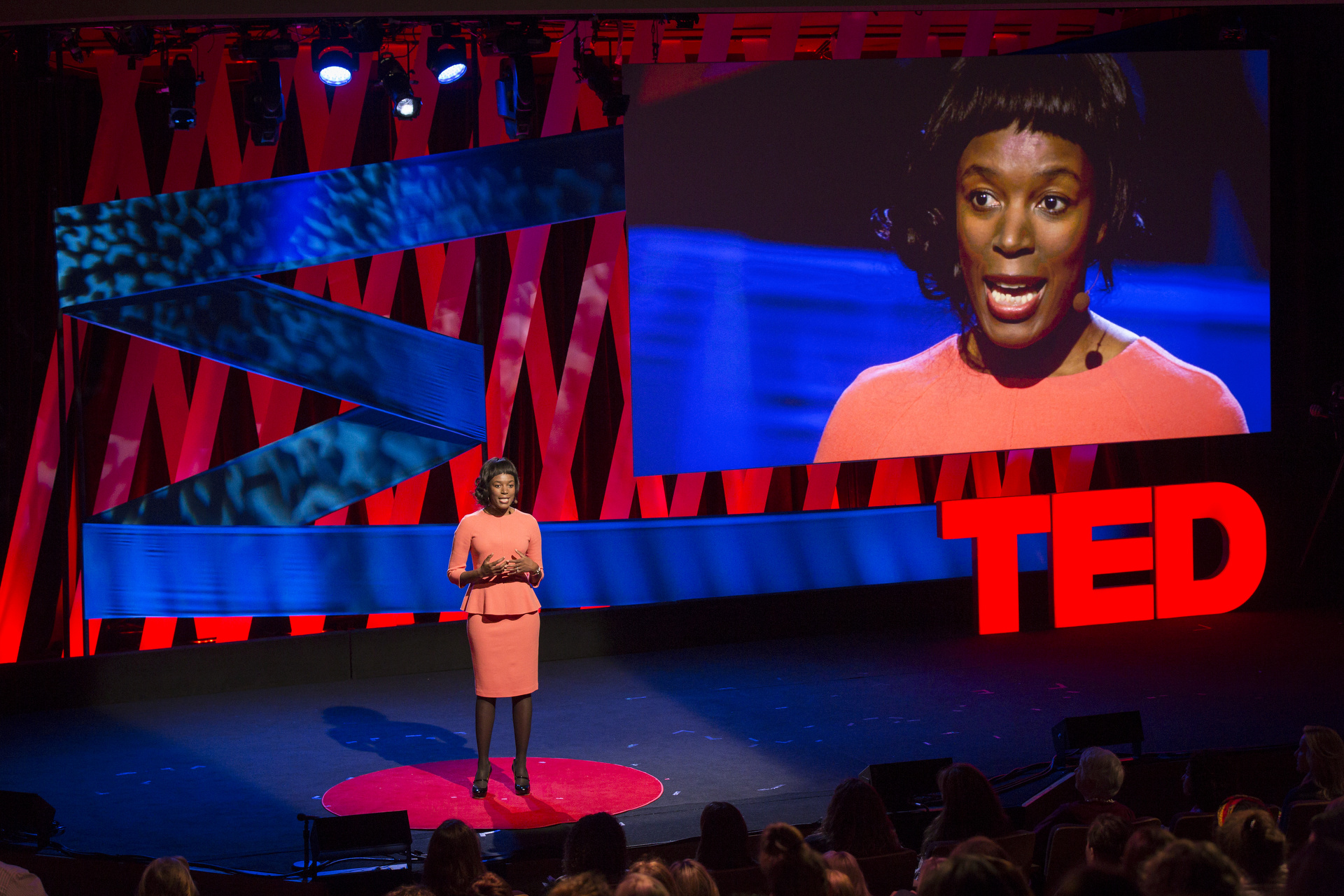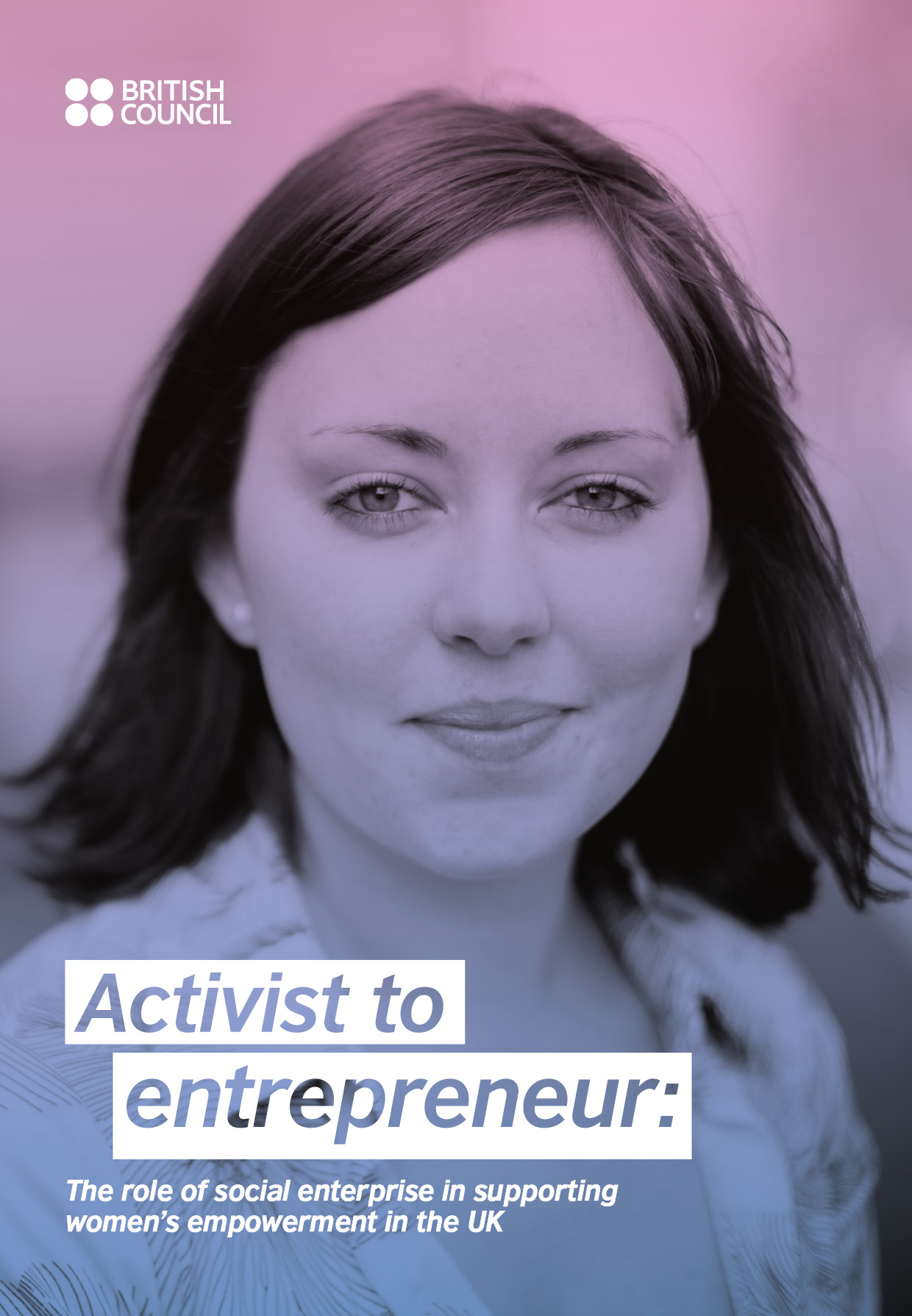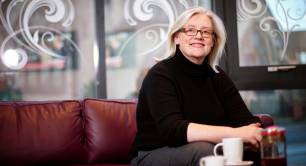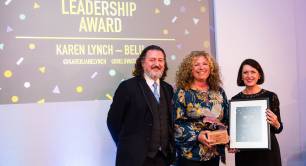Boss of SEUK pledges to be a "stronger advocate" for gender equality
CEO of Social Enterprise UK Peter Holbrook has pledged to be an "even stronger advocate for gender equality" within the social enterprise sector.
Holbrook made the pledge at the launch of a new report from the British Council, which concludes that social enterprises are an under-utilised resource in the global fight to end gender inequality.
The Activist to Entrepreneur: The role of social enterprise in supporting women’s empowerment in the UK report highlights that social enterprise models are being underused as a source of funding for reducing gender inequality, with just 29% of women's rights organisations using income-generating activities globally.
Panellists (from left to right) Peter Holbrook, Claire Dove, Elizabeth Nyamayaro, Meg Munn and Sylvia Douglas at the Activist to Entrepreneur report launch
In the UK, evidence has consistently showed that the social enterprise sector outperforms other business sectors in terms of gender equality. According to SEUK’s State of Social Enterprise Survey, 41% of CEOs in UK social enterprises are women (60% in Scotland and 35% in Wales). This compares to 7% of FTSE 100 companies being run by women and 19% of SMEs.
Furthermore, in 2015/2016, women started 42% of social enterprises in the UK. The report notes that there are only 10 countries in the world where as many women start businesses as men.
...you knew on the ground what the women wanted to do and the needs they had.
Claire Dove is the CEO of Blackburne House and patron of Social Enterprise UK (SEUK). Liverpool-based Blackburne House provides a number of services, from educational programmes and business support to childcare provision at its in-house nursery. At the report launch in London, Dove explained: "Why did we get into social enterprise as an organisation? It was because I didn’t want the grant mentality. The grant-makers were always telling you what they wanted – and you knew on the ground what the women wanted to do and the needs they had. In starting our own businesses, it gave us unrestricted funds and meant we were not being driven by someone else."
Although the UK social enterprise sector performs better than other business sectors on gender equality, it is by no means immune to the inequalities that exist elsewhere. Holbrook highlighted that “the bigger the social enterprise”, the less representation there is of women in leadership positions.
Holbrook continued: “You have to recognise that social enterprise doesn’t exist as its own island, it is part of an ecosystem. To scale a social enterprise, to grow a social enterprise, you need customers. Often those customers are big private businesses that are often heavily dominated by men, who sometimes take a patronising view to women social entrepreneurs.
"In order to grow a social enterprise, you often need to work with the financial services industry, for example to purchase a building or receive investment.
“If you look at financial services or finance as a sector, you see a very prominent dominance of men in that part of the economy. There are virtually no women represented even in the ecosystem of social investment and it’s tragic really. We need to address that,” said Holbrook.
Let’s stop trying to fix women, let’s fix the institutions.
In 2015, the United Nations (UN) launched the Sustainable Development Goals (SDGs). The fifth goal is to ‘Achieve gender equality and empower all women and girls’. Holbrook said that if these goals are to be achieved, organisations across all areas of society must "start reporting against them".
He continued: "We need to be encouraged, if not mandated, to produce our own data on power balances within organisations, on pay ratios, etc. Social enterprises are often ahead of the game in doing that. My organisation has tried to do a lot of that reporting, with some success, but actually we need to use our voice at SEUK to encourage other social enterprises to take similar approaches.
"We also need to start using public procurement. That’s a powerful tool to incentivise businesses – £268bn of public spending – to be transparent around their success in terms of gender equality and all forms of equality, and sustainability, but also to drive a market that rewards and encourages businesses that are genuinely good for society and not those that perpetuate inequalities wherever they exist."
Joining Holbrook and Dove on the panel discussion at the launch of the British Council's latest report, was also CEO of Glasgow-based women's empowerment social enterprise MsMissMrs, Sylvia Douglas, and head of UN Women and the He for She campaign, Elizabeth Nyamayaro. The He for She campaign was launched to encourage men to engage positively in the global fight for gender equality and to celebrate the work of those male advocates who already are.
Douglas described how she was motivated to launch her social enterprise by the lack of female role models around her growing up in Glasgow. MsMissMrs was created after Douglas asked herself: "How would I create a service for women like me?"
MsMissMrs works in deprived communities and since its launch in November 2013 has provided fully funded places for more than 200 girls and women on self-esteem and empowerment workshops. This has been made possible through the sales of 'fun, quirky empowerment pants'.
Nyamayaro's keynote speech at the report launch emphasised that the problem of gender inequality is not just prevalent in developing countries, as the media often portrays, it is felt by women and girls in every country around the world.
 Elizabeth Nyamayaro speaks at TEDxWomen 2015. Credit: TED Conference
Elizabeth Nyamayaro speaks at TEDxWomen 2015. Credit: TED Conference
Nyamayaro said: “It’s a universal challenge – the lack of women in the right positions, at the right level. When we look at where we can make the biggest change... for me it is that we need more women in decision-making positions, in parliament, as the people making the policies.
“Institutions are built by men, for men. We have not been at the table in terms of making the decisions. We are told to ‘lean in’ more, and there’s only so much leaning in you can do because at the end of the day, there’s nothing wrong with women. Let’s stop trying to fix women, let’s fix the institutions.”
The Activist to Entrepreneur report concludes with a set of recommendations to ensure that the social enterprise sector is utilised effectively to support the global mission to end gender inequality. For example, it recommends that social enterprises themselves ‘should equalise parental leave policies, encourage flexible working and job-shares’ and ‘increase the number of female social enterprise leaders through mentoring, targeted leadership programmes, and facilitated peer-support’.
 To access the Activist to Entrepreneur: The role of social enterprise in supporting women’s empowerment in the UK report in full, click here. The report was launched in the same week that UN Women's 16 day End Violence Against Women Campaign began. Check out #orangetheworld on Twitter to follow the campaign (25 November-10 December).
To access the Activist to Entrepreneur: The role of social enterprise in supporting women’s empowerment in the UK report in full, click here. The report was launched in the same week that UN Women's 16 day End Violence Against Women Campaign began. Check out #orangetheworld on Twitter to follow the campaign (25 November-10 December).
Look out for more from UN Women’s Elizabeth Nyamayaro in the next issue of Pioneers Post Quarterly.
Header Photo credit: UN Women




